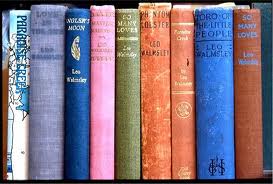Author's note: This review is my work and has appeared in Online Book Club as well. The link for the OBC review: https://forums.onlinebookclub.org/viewtopic.php?f=31&t=367989&p=2346851#p2346851
Verdict: Read it if you have experience with the
navy, the Vietnam war, or the US health care system’s treatment of veterans.
(Rating 3/5)
Overview: This is the first book I’ve ready by Randy
Miller. There weren’t any big
discrepancies between the title and what was in the book – so no spoilers to
say to watch out for in this review.
Most of us younger folks are vaguely aware of the Vietnam
War. I’m not exactly young at 40, but definitely too young to remember the
Vietnam Era as I wasn’t born yet when it happened. We all get the requisite
history classes in school and perhaps a supplemental movie or two. As they say,
to the victor goes the writing of history. I wouldn’t say that the US won the
Vietnam war by any stretch of the imagination, but the US certainly loves
colouring history in very specific shades.
I Enjoyed: This book is obviously written by someone
that has a very similar (but not exact) experience as Zach, the protagonist of
the story. I would bet the author had a similar upbringing to the protagonist
as well, being from a farm or a very simple, straight forward spoken family.
This honesty and candour bring a refreshing, non-politicized viewpoint. We also
get to hear about the navy’s roll in the Vietnam war, something that isn’t
frequently discussed in history classes. I find it very honest when service men
and women are open about their experience in the armed forces. I find it
important to have an open discussion about the armed forces rather than just
hero worship that gets piped through politicians and the news daily.
Suggestions for Improvement: I’ll start with the most obvious point
for me, which was the accents. Not only did I find it confusing why this
mattered to the plot line, trying to read the dialogue was distracting as hell
as I found myself sounding out words and wondering how they fit in this or that
accent. I also found myself drowning in definitions and explanations about the
navy that did not do anything at all for the plot. As a fellow author, I have
an unfortunate amount of experience in how this happens, especially in light of
the earlier explanation of how I’m pretty sure this is a personal experience
for the author. While there was a plot (I wondered for a while in the middle!),
I found it too loosely structured and lacking in details that would keep the
reader engaged in the plot rather than understanding the author’s experience in
the navy. In fact, Vietnam seemed like a subplot to the navy experience and the
protagonist’s relationship, which I find to be a shame. I was disappointed in the lack of character
development in the protagonist. Randy Miller has explained his background
perhaps a bit too thoroughly, but he remains flat and unreachable on the page.
I’m a stickler for plot and character development, as well as consistence. For
a book about the Vietnam war, the war itself seemed like an afterthought. The
accents/dialect differentiation between characters made it difficult to
understand how well proofread the book was. This affected my rating as well.
Summary: Someone has done Randy Miller a disservice
in terms of editing and plot development if it’s not self-published. With a
little better plot and character development, this novel could be a very good
read. That being said, I find his experience important to share even in the
current state. The parallels between some of what’s happening in the US today
is not an obvious repeat of previous experiences, which I personally find
interesting as well as exasperating. I
think it would be more appealing to someone who has first hand experience with
the navy.
